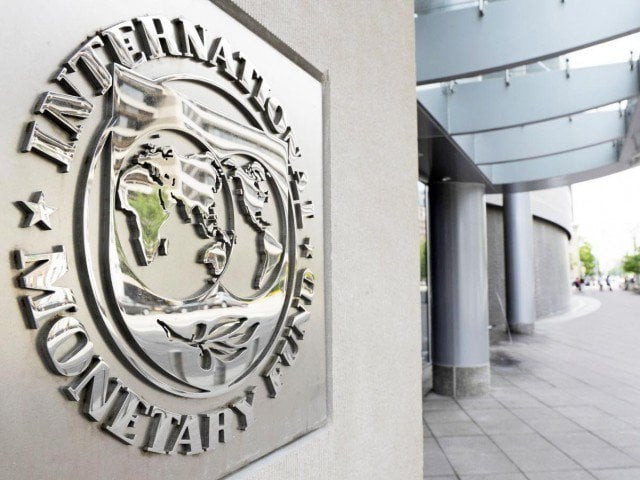IMF wraps up 10th review of Pakistan’s economy
Paves way for second last tranche of $6.2b loan programme; lenders’ executive board expected to meet late next month

Paves way for second last tranche of $6.2b loan programme; lenders’ executive board expected to meet late next month. PHOTO: AFP
Amid calls to revive the stalled privatisation of Pakistan’s power sector, the International Monetary Fund (IMF) on Thursday reached a staff-level agreement with Islamabad on the completion of the tenth review of the country’s economy, paving the way for the release of the second last tranche of the $6.2 billion loan package.
The agreement was reached at the end of policy talks held in Dubai, according to an announcement by the global lender. It will now have to be cleared by the executive board of IMF so that Pakistan can receive the eleventh loan tranche of $497 million.
IMF approves $497m loan for Pakistan after bailout review
The board is tentatively scheduled to meet at the end of next month, a finance ministry official said. If approved, this next tranche will bring cumulative disbursements by the lender to Pakistan to $5.5 billion.
During the tenth review talks, IMF retained its Gross Domestic Product growth rate projection at 4.5% for the current fiscal year – 1% less than the official target. Less than the required rate of economic growth will further increase unemployment, which currently stands at a 13-year-high of 8.3%.
IMF, however, increased its inflation forecast to 4.5% from its earlier assessment of 3.7% after the key inflation indicator has been inching up for the last four months.

“While many structural benchmarks have been met, measures pertaining to energy sector reforms and restructuring loss-making public enterprises have yet to be implemented,” the Washington-based chief of the IMF mission in Pakistan, Harald Finger, was quoted as saying in an official statement released by the lender.
IMF agrees to delay PIA sell-off for six months
IMF also extended the deadline for inviting prospective investors for privatisation of Pakistan international Airlines. “Following the Senate’s repeal of the ordinance corporatising PIA, soliciting expressions of interest for strategic private sector participation would not have been possible,” Finger said in response to a question sent by The Express Tribune.
He added that in light of recent events, Pakistan needs some time to complete dialogue with various stakeholders in order to build consensus regarding a way forward. “We are saddened by the recent events and the loss of life, and hope that the ongoing dialogue on these issues can proceed calmly and a consensus can be found that allows putting PIA and other loss-making public enterprises on a stable and sustainable path,” Finger said.
The government has unofficially stalled the privatisation of power sector after taking Faisalabad Electricity Supply Company (Fesco) privatisation process to a very advanced stage.
The government’s privatisation programme has so far been limited to selling stakes in profitable entities to raise funds for budget financing. The Privatisation Commission has generated $1.7 billion this way over the last two years. In violation of the requirements of the Privatisation Ordinance of 2001, the finance ministry used this amount to finance the budget instead of retiring debt.
Pakistan faces Rs3.3 trillion revenue black hole, says IMF
Sources said IMF has asked the government for an alternative plan in case it remains unable to take power sector privatisation to the next phase. They said IMF asked the government to bring a plan that did not have implications on the budget.
IMF said that Pakistan has met all quantitative performance criteria for the second quarter (October-December) of current fiscal year 2015-16. These include achieving first half budget deficit target of Rs625 billion and increasing net international reserves of State Bank of Pakistan to $9.3 billion.
The IMF statement noted that economic activity remains robust, although a weak cotton harvest, declining exports, and a more challenging external environment are weighing on growth prospects.
It said that further consolidation of economic gains of last two years require “advancing energy sector reforms, setting in motion competitiveness-enhancing improvements in the business climate, continuing to expand the tax net, and ending losses in public enterprises”. It emphasised that completing these reforms will help set Pakistan on a permanently higher growth trajectory and achieve the country’s broader economic objectives.
Published in The Express Tribune, February 5th, 2016.



















COMMENTS
Comments are moderated and generally will be posted if they are on-topic and not abusive.
For more information, please see our Comments FAQ